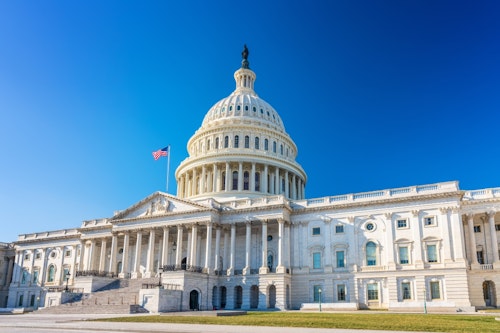House Votes to Revamp the Nation’s Apprenticeship System

While all eyes are rightfully on rescuing our economy and beating the pandemic, the US House of Representatives just took a major step to prepare our country for a long-term economic recovery in a post-COVID era. Today 247 voted to pass the National Apprenticeship Act of 2021, crucial legislation to vastly expand apprenticeships in this country and make them available to far more people. The legislation would help foster an inclusive economic recovery, as apprenticeships can help people regain their footing in the labor market.
This pandemic has hit low-wage workers, people of color, and women particularly hard. Almost 11 million Americans are out of work, and there are nearly 10 million fewer jobs in the United States than when the pandemic began. While many of those jobs could come back, it’s possible the pandemic has permanently altered certain sectors of the economy and that workers may need to acquire new skills or upgrade their old ones to succeed in the post-pandemic labor market. Apprenticeships can help with this. Apprenticeships are a proven earn-while-you-learn training model—apprentices start earning a paycheck from Day 1, with wages increasing as they progress through their training. Apprenticeships are employer-driven and therefore closely tied to employer demand. According to the US Department of Labor, 94% of workers who complete an apprenticeship are employed six months later, and over 90% earn an average of $70,000 annually. It’s a win for employers too, who typically report high levels of satisfaction with their apprenticeship programs and are better able to meet their talent needs.
The National Apprenticeship Act of 2021 takes a series of steps to dramatically expand apprenticeship opportunities to more people. It promotes the creation of apprenticeships in newer fields like health care, IT, and financial services, where entry into well-paying careers may not always require a four-year degree. The bill also focuses on expanding apprenticeship opportunities to groups who have traditionally been underrepresented or who face barriers to employment, such as women, people of color, people with disabilities, and returning citizens. In 2019, women made up roughly half the labor force but just 9% of active apprentices.
The bill would also create more apprenticeship opportunities by making a significant investment in state apprenticeship systems. To do this, it would authorize $75 million in formula funds to the states to expand apprenticeships, rising to $115 million by FY 2026. Formula funding would give states more certainty and ability to plan apprenticeship expansion activities—something states have pointed to as a need. Building a robust apprenticeship system takes time, and our funding structure should reflect this.
The bill also would require states to create or expand apprenticeship hubs—regional intermediaries that will play a critical coordinating role in a state’s apprenticeship system and provide services to expand apprenticeship opportunities in the state. For example, apprenticeship hubs can recruit employers to create or expand apprenticeship programs, assist with program registration, and connect apprentices to supportive services. This is an idea Third Way has long advocated for as part of our Apprenticeship America proposal, and we’re thrilled to see it become part of apprenticeship reauthorization.
We thank Chairman Bobby Scott and the House Education and Labor Committee for their leadership on this bill. Attention now turns to the Senate, and we look forward to working with the Senate Health Education Labor and Pensions Committee—led by Senator Patty Murray—on legislation to expand economic opportunity to everyone, help rebuild our economy, and ensure work leads to a good life.
Subscribe
Get updates whenever new content is added. We'll never share your email with anyone.
